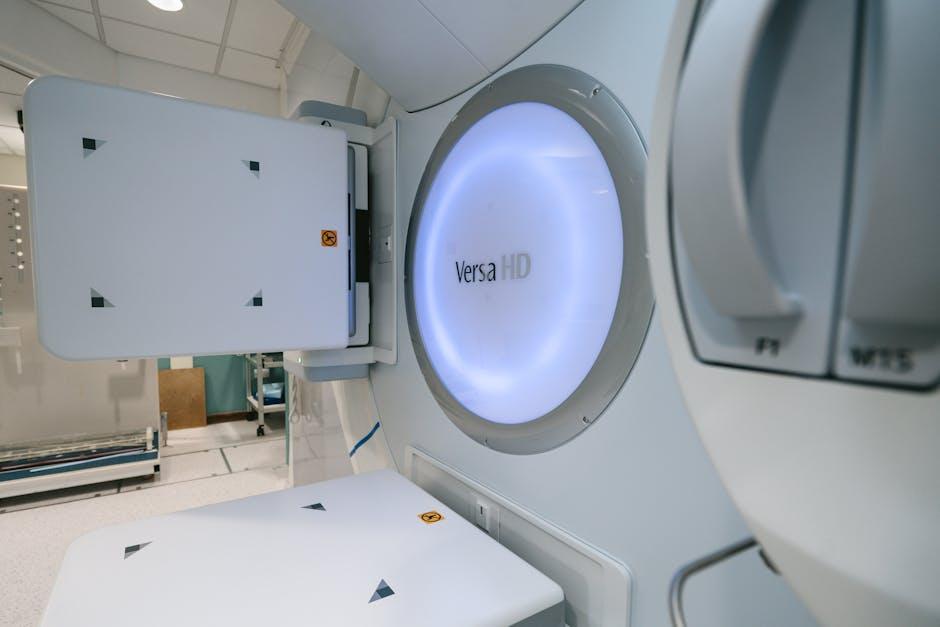In the labyrinth of medical science, where hope often intertwines with uncertainty, cancer research stands as one of humanity’s most relentless quests. For decades, scientists and clinicians have pursued elusive breakthroughs, driven by the promise of transforming diagnosis, treatment, and survival. Today, as doors once thought firmly closed begin to open, new discoveries are illuminating paths previously hidden in shadow. This article journeys through the latest major milestones in cancer research—unlocking not only the mechanisms of the disease but also the hope of a future where cancer may no longer be a harbinger of despair.
Table of Contents
- Emerging Technologies Transforming Cancer Detection
- Innovative Therapies Offering New Avenues for Treatment
- The Role of Personalized Medicine in Enhancing Patient Outcomes
- Bridging Research and Practice Through Collaborative Efforts
- Insights and Conclusions

Emerging Technologies Transforming Cancer Detection
Revolutionary strides in artificial intelligence and molecular biology are redefining how oncologists identify cancer, enabling earlier and more accurate diagnoses than ever before. Cutting-edge liquid biopsy technologies, which analyze circulating tumor DNA from a mere blood sample, are making invasive tissue biopsies less necessary. Combining this with AI-powered imaging analysis enhances detection sensitivity, revealing malignancies that traditional methods might overlook. These technological advancements not only accelerate diagnosis times but also sharpen the precision of identifying cancer subtypes, critical for tailoring therapies effectively.
Beyond diagnostics, smart wearable biosensors are emerging as non-intrusive guardians, continuously monitoring biomarkers indicative of cellular abnormalities. These devices empower patients through real-time health insights while clinicians gain valuable data to track disease progression. Below is a snapshot of some breakthrough tools reshaping cancer detection today:
| Technology | Key Benefit | Primary Application |
|---|---|---|
| Liquid Biopsy | Non-invasive early detection | Circulating tumor DNA analysis |
| AI Imaging | Enhanced accuracy & speed | MRI & CT scan interpretation |
| Wearable Biosensors | Continuous monitoring | Biomarker tracking |
- Targeted Detection: Pinpoints tumor signatures for personalized intervention
- Improved Accessibility: Enables screenings beyond hospital settings
- Data-Driven Decisions: Integrates vast patient data for nuanced insights

Innovative Therapies Offering New Avenues for Treatment
Cutting-edge treatments are redefining the landscape of cancer care, providing patients with options that were once considered impossible. Among these, immunotherapy stands out by empowering the body’s own defense systems to target and destroy cancer cells with unparalleled precision. Alongside this, gene-editing technologies such as CRISPR offer hope by enabling scientists to directly correct genetic mutations that cause cancer, opening doors to personalized medicine tailored to the unique genetic profile of each patient.
Additionally, advancements in targeted drug delivery and nanotechnology minimize side effects by focusing treatment strictly where it is needed most. These revolutionary approaches include:
- CAR-T cell therapy: Custom-engineered immune cells attack tumors with remarkable efficacy.
- Oncolytic viruses: Designed viruses selectively infect and kill cancer cells while stimulating immune responses.
- Precision radiotherapy: Utilizes AI to target malignancies with microscopic accuracy.
| Therapy | Key Benefit | Status |
|---|---|---|
| Immunotherapy | Boosts immune response to tumors | Approved & Widely Used |
| Gene Editing (CRISPR) | Targets cancer-causing mutations | Clinical Trials |
| Nanotechnology | Precise drug delivery | Emerging Research |

The Role of Personalized Medicine in Enhancing Patient Outcomes
Harnessing the power of genomics and advanced diagnostics, modern oncology is no longer limited to a one-size-fits-all approach. By analyzing an individual’s unique genetic makeup, doctors can now tailor treatments that specifically target the molecular drivers of their cancer. This shift has paved the way for therapies that are more effective, minimize unnecessary side effects, and significantly improve quality of life. Personalized medicine transforms the patient from a statistic into a unique individual with a treatment plan designed for their biology.
The benefits of this individualized strategy extend beyond drug selection. By integrating detailed patient data—such as lifestyle factors, tumor genetics, and response patterns—clinicians create dynamic treatment pathways that adapt over time. The following key advantages highlight why personalized medicine is revolutionizing cancer care:
- Precision Targeting: Enhanced accuracy in attacking cancer cells while sparing healthy tissue.
- Reduced Toxicity: Lower rates of adverse reactions and improved patient tolerance.
- Optimized Outcomes: Higher chances of remission and longer survival.
- Adaptive Therapy: Treatments evolve in real-time to overcome resistance and relapse.
| Personalized Medicine Component | Impact on Patient Outcome |
|---|---|
| Genetic Profiling | Identifies targetable mutations for tailored therapy |
| Biomarker Monitoring | Tracks treatment effectiveness and adjusts plans quickly |
| Pharmacogenomics | Customizes drug dosage based on metabolism and safety |
| Immune Profiling | Guides immunotherapy choices for enhanced response |

Bridging Research and Practice Through Collaborative Efforts
Transformative progress in cancer research is increasingly fueled by the dynamic synergy between scientists and clinicians. This partnership accelerates the translation of laboratory discoveries into practical treatments, ensuring patients benefit swiftly from cutting-edge innovations. By fostering multidisciplinary teams, each breakthrough not only enhances understanding but also optimizes therapeutic strategies anchored in real-world evidence. These collaborative ecosystems empower continuous feedback loops where clinical outcomes refine research focus, creating a robust cycle of improvement.
- Enhanced Data Sharing: Seamless exchange of clinical trial results and patient data improves accuracy in treatment development.
- Integrated Technology: Utilization of advanced AI and bioinformatics tools accelerates the identification of viable drug targets.
- Joint Training Programs: Cross-disciplinary education builds a workforce proficient in both scientific inquiry and clinical application.
Consider the table below highlighting exemplary collaborative initiatives revolutionizing cancer care:
| Initiative | Primary Focus | Outcome |
|---|---|---|
| Genomic Alliance | Personalized Medicine | Tailored therapies for lung and breast cancers |
| ImmunoConnect | Immunotherapy Development | Enhanced immune system activation to fight tumors |
| Data Nexus | Clinical Data Integration | Improved predictive models for treatment responses |
Insights and Conclusions
As the horizon of cancer research continues to expand, these groundbreaking discoveries illuminate pathways once shrouded in uncertainty. Each breakthrough, a beacon of hope, brings us closer to transforming the narrative of cancer from one of fear to one of resilience and possibility. While challenges remain, the spirit of innovation and relentless pursuit of knowledge promise a future where cures are not just aspirations but attainable realities. In unlocking hope today, we pave the way for a healthier tomorrow.



